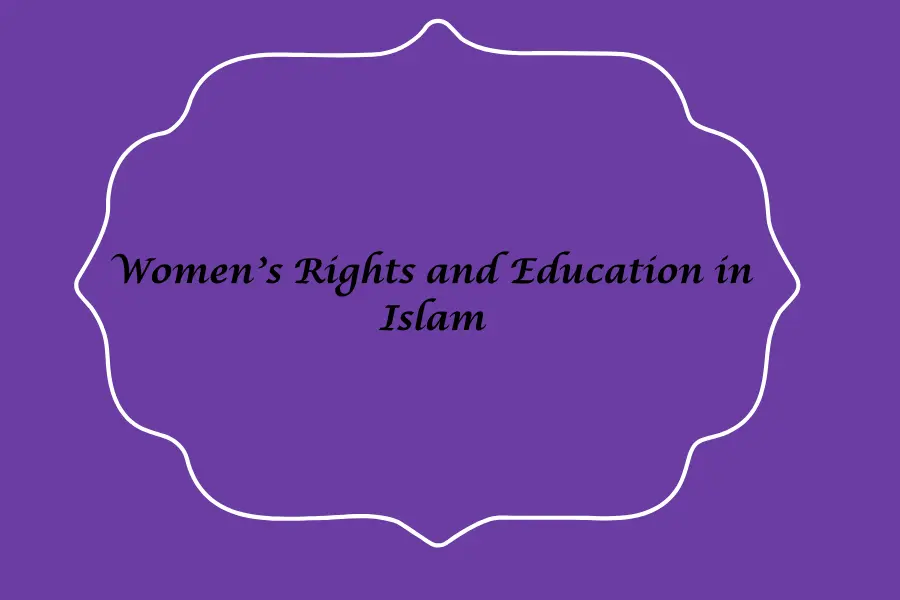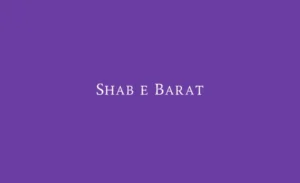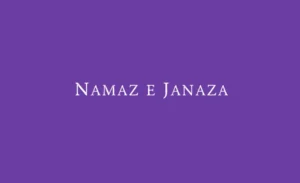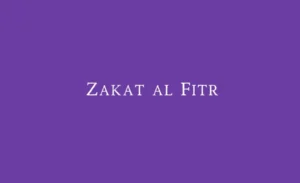In today’s rapidly evolving world, discussions about women’s rights and education have taken center stage across global societies. Yet, long before international charters and conventions promoted gender equality, Islam had already established a divine framework that recognized women’s dignity, intellectual potential, and right to learn. Contrary to widespread misconceptions, Islam does not restrict education to men, rather it commands both men and women to seek knowledge, pursue understanding, and contribute meaningfully to their families and communities.
The Qur’an and Sunnah (teachings of Prophet Muhammad ﷺ) lay a strong foundation for women’s empowerment through education, emphasizing that knowledge is a sacred obligation. The very first word revealed in the Qur’an was “Iqra” (Read), highlighting that the pursuit of learning is a spiritual act of obedience to Allah ﷻ. This command was not limited to one gender but addressed to all humanity, reinforcing the idea that education is a right and duty for every Muslim, male and female alike.
Throughout Islamic history, Muslim women have been scholars, jurists, poets, teachers, and leaders, contributing to the advancement of civilization. Figures like Aisha bint Abi Bakr (RA), Fatimah al-Fihri, the founder of the world’s first university in Fez, Morocco and Umm al-Darda (RA) stand as powerful examples of how Islam encouraged women’s active participation in intellectual and spiritual life.
Unfortunately, in many modern societies, cultural traditions and social barriers have sometimes overshadowed the true teachings of Islam. Practices that restrict women’s access to education or public roles often stem from customary norms rather than authentic Islamic teachings. It is therefore crucial to revisit the Qur’an and Hadith to understand what Islam truly says about women’s rights and education—an understanding that not only empowers women but uplifts entire communities.
This article aims to explore the Islamic framework of women’s rights and education, supported by authentic Qur’anic verses, Hadiths, and historical examples. It will also address misconceptions, highlight real-world challenges, and offer practical solutions for ensuring that Muslim women everywhere can benefit from the light of knowledge that Islam so beautifully advocates.
By understanding the balance between faith, education, and social responsibility, we can restore the original vision of Islam, where knowledge is power, and education is a divine right for every believer.
Discussion on Women’s Rights and Education in the Quran
The Qur’an lays a profound foundation for intellectual and spiritual equality between men and women, emphasizing that knowledge is a divine gift for all believers. It repeatedly calls upon both genders to reflect, learn, and seek understanding of Allah’s creation. Through its verses, Islam establishes that the pursuit of knowledge and moral excellence transcends gender, making education a shared responsibility and source of honor in the sight of Allah ﷻ.
1.1 Surah Al-‘Alaq (96:1-5) – The Primacy of Learning
Arabic: اقْرَأْ بِاسْمِ رَبِّكَ الَّذِي خَلَقَ * خَلَقَ الْإِنسَانَ مِنْ عَلَقٍ * اقْرَأْ وَرَبُّكَ الْأَكْرَمُ * الَّذِي عَلَّمَ بِالْقَلَمِ * عَلَّمَ الْإِنسَانَ مَا لَمْ يَعْلَمْ
Transliteration: Iqra’ bismi rabbika alladhi khalaq * khalaqa al-insana min ‘alaq * iqra’ warabbuka al-akram * alladhi ‘allama bil-qalam * ‘allama al-insana ma lam ya‘lam
English translation (Saheeh International / common): Read in the name of your Lord who created * Created man from a clinging substance * Read, and your Lord is the Most Generous * Who taught by the pen * Taught man that which he did not know.
These verses underscore that acquiring knowledge is among the first commands revealed, and that Allah teaches through the “pen”, implying recording, writing, learning; attributes of knowledge, scholarship, education.
1.2 Surah Al-Mujaadilah (58:11) – Elevation by Knowledge
Arabic: يَا أَيُّهَا الَّذِينَ آمَنُوا إِذَا قِيلَ لَكُمْ تَفَسَّحُوا فِي الْمَجَالِسِ فَافْسَحُوا ۖ وَإِذَا قِيلَ انشُزُوا فَانشُزُوا ۖ يَرْفَعِ اللَّهُ الَّذِينَ آمَنُوا مِنكُمْ وَالَّذِينَ أُوتُوا الْعِلْمَ دَرَجَاتٍ ۚ وَاللَّهُ بِمَا تَعْمَلُونَ خَبِيرٌ
Transliteration: Yā ayyuhā alladhīna āmanū idhā qīla lakum tafassaḥū fī al-majālisi fafsaḥū wa-idhā qīla inshuzū fanshuzū yarfa‘i Allāhu alladhīna āmanū minkum wa-alladhīna ūtu al-‘ilma darajātin, wa-Allāhu bimā ta‘malūna khabīr
English translation: O you who have believed, when you are told, “Make room in assemblies,” then make room; Allah will make room for you (in His Mercy). And when you are told, “Rise up,” then rise up. Allah will exalt those of you who believe, and those who have been given knowledge, by degrees. And Allah is Acquainted with what you do.
This verse highlights that knowledge is a cause of elevation in degrees. Whether man or woman, the believer who is given knowledge is elevated.
Other Quranic Verses: Spiritual Equality & Legal Rights
Below are some important verses that signify the spiritual equality and legal rights of women:
Surah Al-Ahzab (33:35): men and women equally rewarded for acts of faith, patience, truthfulness, etc.
Surah An-Nisa (4:32): “to men their due and to women their due” in earnings / rights.
These verses beautifully affirm that men and women stand equal before Allah in matters of faith, reward, and responsibility. Islam recognizes women as independent individuals with their own rights in belief, worship, and worldly affairs. The Qur’an’s emphasis on fairness and equal recompense highlights that spiritual excellence and moral worth are determined by piety, not gender. Thus, Islam firmly establishes the foundation for women’s legal, spiritual, and educational empowerment within its divine framework.
Hadiths & Prophetic Teachings on Knowledge & Women
The Prophet Muhammad ﷺ strongly emphasized the pursuit of knowledge for every Muslim, regardless of gender. His sayings and actions reflect a deep respect for women’s intellect and their right to learn and teach. Through authentic Hadiths and the example of female companions who became scholars, Islam demonstrates that seeking knowledge is not a privilege but an obligation and source of honor for both men and women.
“Seeking knowledge is obligatory upon every Muslim”
Arabic: طَلَبُ الْعِلْمِ فَرِيضَةٌ عَلَى كُلِّ مُسْلِمٍ
Transliteration: Ṭalabu al-‘ilmi farīḍatun ‘alā kulli muslimin
English: “Seeking knowledge is an obligation upon every Muslim.”
This profound Hadith highlights that the pursuit of knowledge is a sacred duty for every Muslim, male and female alike. It reinforces that learning is not merely encouraged but obligatory in Islam, forming the foundation of a righteous and informed society. Through this teaching, the Prophet ﷺ emphasized that education is a path to spiritual growth, empowerment, and service to humanity.
Note: Some scholars say the hadith is da‘īf (weak) “as narrated with certain chains”, but most maintain the meaning (that seeking knowledge is binding) using other supporting evidence.
Goodness of women scholars & early Muslim women
Examples of female companions and scholars who taught, issued fatwā, narrated hadith, etc. For example:
- A’isha (RA) is one of the primary narrators of hadith and was consulted on religious and legal matters.
- Umm al-Darda (RA), among others, taught in mosques; she was a jurist.
These are historical proofs of women’s active role in Islamic education. Early Muslim women played a vital role in the preservation and transmission of Islamic knowledge. Esteemed figures like A’isha (RA) were among the foremost narrators of Hadith and were frequently consulted for religious rulings. Scholars such as Umm al-Darda (RA) also taught in mosques and were recognized for their deep understanding of Islamic jurisprudence, inspiring generations of learners.
Historical & Contemporary Examples
Throughout history, Muslim women have contributed greatly to education, scholarship, and social reform. From early scholars like Fatima al-Fihri, the founder of the world’s first university, to contemporary figures such as Dr. Ingrid Mattson, women continue to lead and inspire in various fields. Their achievements reflect the enduring Islamic emphasis on knowledge and intellectual growth for all.
- Early Islamic era: women scholars, female jurists, participation of women in educational life.
- Modern research: studies from Pakistan, Afghanistan etc showing that access to education for women increases social welfare, literacy, reduces poverty.
Barriers & Challenges
Even though Islamic sources supports women’s education and rights, in many places there are practical impediments:
- Cultural norms / patriarchy that limit girls from going to school or to higher education
- Poverty and lack of infrastructure, especially in rural areas
- Security, transportation issues for female students
- Misinterpretation of Islamic texts, or conflation of culture & religion
- Legal / institutional barriers in policy or practice
Despite Islam’s clear support for women’s education and rights, many face barriers such as cultural restrictions, poverty, safety concerns, and misinterpretations of religious teachings. These challenges often stem from societal practices rather than faith itself. With growing awareness and efforts for reform, positive change continues to empower more women to pursue knowledge and fulfill their potential.
Practical Steps & Recommendations
To strengthen women’s rights to education in Muslim societies, the following help:
- Re-establishing correct Islamic teachings in mosques, madrassas, and homes, clarifying that women’s education is not only permissible but encouraged and often obligatory in various forms
- Encouraging scholarship and role models that increase publicizing of female Muslim scholars and educational institutions led by women
- Supportive policies that provide safe transportation, scholarships, female teachers, female-friendly facilities
- Community engagement which involves families to see the long-term benefits of educating girls
- Including both secular and religious education so women are equipped for life and spiritual growth
By promoting authentic Islamic teachings, supportive policies, and community involvement, Muslim societies can create an environment where women’s education flourishes. Empowering women through both religious and secular learning strengthens families, uplifts communities, and aligns with Islam’s vision of knowledge as a shared duty and blessing for all.
Summary
Islamic sources such as Qur’an, Sunnah, and early history clearly support women’s rights to education, knowledge, and participation in learning. While many challenges persist, they are not due to Islam itself but due to societal, cultural, and economic barriers. Upholding these rights is important not only for justice but for the welfare of the community, moral growth, and advancement.
FAQs (Frequently Asked Questions)
Is women’s education obligatory in Islam?
Yes. The Qur’an commands seeking knowledge; many hadiths indicate that education / knowledge seeking is an obligation for every Muslim. While the exact scope differs among scholars (what knowledge, how much), the principle is broadly accepted.
Are there any Islamic texts that restrict women’s education?
No authentic text prohibits women’s education. Restrictive practices are mostly cultural, not religious. Misinterpretations or local customs sometimes limit women, but Islamic jurisprudence supports the right to learning.
What kind of education is Islam encouraging for women?
Religious knowledge (Qur’an, Hadith, Fiqh) as well as worldly knowledge (languages, science, mathematics, arts) insofar as it is beneficial and doesn’t contradict Islamic ethics.
Do scholars agree on the hadith “seeking knowledge is obligatory”?
There is scholarly debate about the chain (isnāḍ) and grading of some narrations, but many scholars consider the meaning valid. The term “every Muslim” (kulli muslimin) includes men and women.






